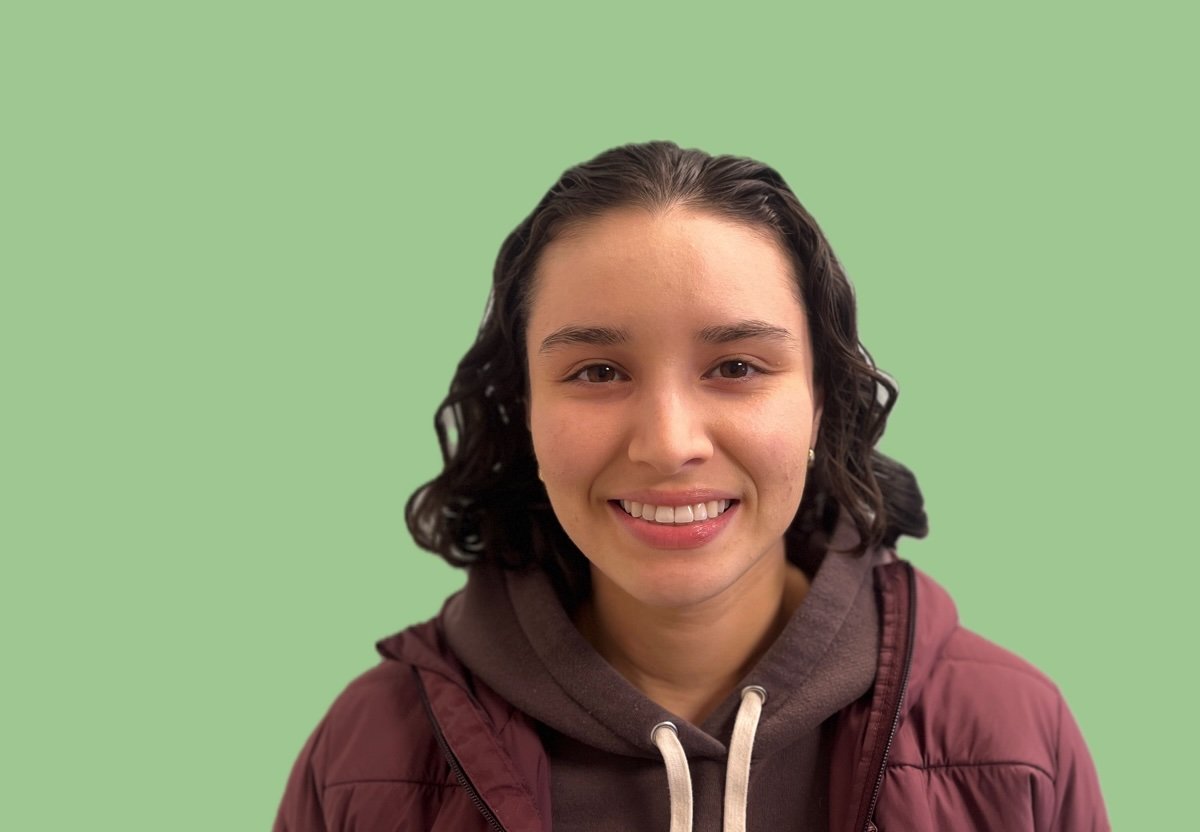Tutor Spotlight: Joe Fox

Meet Joe.
What is one aspect you love about tutoring?
I absolutely cherish the moments when I can tell that a new concept has finally clicked for a student. Or when they tell me that they have never understood something before and now they finally do – there is such a rush of satisfaction and excitement for both of us. It just makes the shared work so fun.
Do you have a favorite topic or discipline to tutor and why?
I really feel like I have a close relationship with all aspects of the SAT and ACT, at this point. But I am still an English teacher and a grammar nut at heart. The SAT Writing and ACT English sections are my favorite because the rules are concrete and finite. We learn the rules and what to watch out for, and then we just start consistently getting correct answers. Moreover, I appreciate grammar and punctuation because these core skills help students beyond a high score on the test; they also help them become better writers, readers, and thinkers.
How do you motivate students to become better life-long learners?
At every opportunity while tutoring, I am careful to point out the connections between standardized test preparation and the real lives of my students and to highlight the broad value of learning itself. Understanding the rules for comma use, for example, is a great way into the Writing section of the SAT, but it is also a vital part of academic and creative writing in school and beyond. I think it is important for students and teachers alike to put the SAT, ACT, or any challenging academic task in the context of the life we want to lead and the goals we want to achieve. There is a direct link there that often goes unnoticed.
Can you share a piece of advice or study tip that you would give to any student?
With any complex and intellectually challenging skill – whether playing the guitar solo from “Stairway to Heaven” or getting an 800 on the Math section of the SAT – it’s vital to understand that we must go slow in order to go fast. Humans learn at half speed first. We study the moves. We do our best to grow our muscle memories and confidence. And then (and only then!), after that slow practice has been perfected, do we move to the task of playing the solo at real speed, right along with the record. The same is true of the SAT or ACT. Furthermore, the ability to take a step back from that work and reflect upon it can be just as important in the midst our academic lives as it is in our personal lives.
Can you share an example of a time when you felt a concept finally “clicked” with a student?
I try to make this a daily occurrence for me as a tutor, to be honest. But I remember once a parent telling me that their son had learned more Geometry from me in 15 minutes than they had learned in their entire 10th grade year. And another student explained that they have never understood how to use commas correctly until they met me. These affirmations are wonderful – they help keep me going.
What have you learned from your students?
So much. I could probably say “everything,” in some ways, because the process of teaching begins with getting to know your students. Only after you understand who they are and where they are coming from can you begin to chart out a truly effective course of study. Sure, everyone must learn the same skills – eventually. But how those skills are approached and when they are brought into the mix is unique to every student.
Meet Mason. Thoughtful and engaging, Mason is an SAT tutor who brings both structure and warmth to his sessions. He’s worked with students in one-on-one and classroom settings, including at a premium tutoring organization in NYC, where his instruction led to high engagement and measurable score gains. Mason particularly enjoys supporting students who benefit from individualized approaches and flexible pacing. He spends his free time writing creatively and seeking out live music.
Meet Molly. Molly has always loved sharing knowledge and helping others learn. She first started tutoring nine years ago in high school, where she offered reading and homework help to elementary and middle school-aged kids. In college, she began to professionally tutor chemistry to high schoolers and fellow college students. She primarily tutors STEM subjects, including biology, physics, and all things chemistry!
Meet Jacob. With a degree in physics, Jacob boasts 4 years of tutoring experience in a peer setting. He strives to imbue his students with a deep conceptual fluency and understanding, using his own knowledge of the ACT and SAT to empower students to engage in robust and rigorous practice.
Meet Natalie. With over 10 years of experience as an educator, Natalie has an extensive background as an executive function and academic coach for high school and college students. She has also tutored writing at every level, from preschool to undergrad. She's gifted at meeting students where they’re at, supporting learning differences, and creating a caring learning experience.
Meet Shae. Shae brings nearly seven years of classroom experience to her work as an educator. She has ample experience supporting neurodiverse learners in subjects ranging from middle school social studies to college admissions essays, and is passionate about creating learning environments where students feel engaged and empowered.
Meet Ann. In everything she does, Ann brings a passion for language. As a former English professor, grant writer, environmental advocate, and creative writer, she's honed an ability to find the right words to move her intended audience. She knows finding your story isn't always easy, but it is possible – and can even be fun! She’s committed to helping students get past the challenge of a blank page and find their unique voice.
Meet Ben. Now in his eighth year with North Avenue Education, Ben tutors a wide range of subjects, including the SAT and ACT, AP History and Social Sciences, and graduate exams like the LSAT, GRE, and GMAT. He is passionate about teaching and finds it especially rewarding to watch students grasp elusive concepts - whether a theme in U.S. History, the properties of exponents, or how to identify necessary and sufficient conditions in logic – and apply them independently in new contexts.
Meet Casey. Casey specializes in science tutoring and SAT/ACT prep, drawing on extensive teaching experience to adapt to each student’s needs with patience and empathy. They build confidence and self-sufficiency by identifying strengths, addressing challenges, and making learning engaging – even sparking a passion for subjects students once disliked!
Through rigorous hiring, ongoing development, and long-term retention, we ensure students receive exceptional, personalized instruction from dedicated mentors who foster confidence and academic success.
Meet Riley. Riley is a seasoned educator with a master’s degree in English and over a decade of experience teaching and tutoring writing, critical reading, and standardized test preparation. Boasting extensive experience coaching SAT, ACT, and SSAT, Riley excels at helping students hone their analytical and time-management skills for success on test day. His patient, tailored approach ensures each student gains confidence and mastery in tackling complex material.
Meet Aster. A recent Physics graduate from Reed College, Aster boasts over 3,000 hours of professional tutoring experience, specializing in SAT/ACT test prep as well as AP Calculus and IB Physics. They bring a deep understanding of test formats and advanced subject material to yield an individualized approach to tutoring sessions. Aster’s teaching philosophy emphasizes clarity, compassion, and mutual collaboration to help students succeed in school and beyond.
Meet Chandler. A dynamic educator with over a decade of experience, Chandler specializes in helping students master science concepts and develop effective study skills. With a background in executive function coaching for neurodiverse learners, Chandler combines a passion for STEM with personalized strategies to help students stay organized, focused, and engaged.
Meet Maria. With a deep understanding of both foundational and advanced mathematical concepts, Maria is skilled at simplifying complex problems and making them accessible to students. She tailors her tutoring approach to meet the unique needs of each student, helping them build confidence and improve their skills. Whether working through fundamental concepts or preparing for more advanced topics, Maria is dedicated to providing clear and patient guidance to support student success.
Meet Alisa. She brings a compassionate and patient approach to tutoring. With extensive experience as a peer mentor and undergraduate teaching assistant, she excels in creating affirming learning environments tailored to neurodiverse students. Alisa’s academic background and dedication to inclusive education make her an invaluable asset to students striving to understand complex mathematical and scientific concepts.
Meet Arek. He specializes in nurturing the academic growth of neurodivergent students and those with learning differences. With a psychology degree and robust experience in diverse teaching settings (incl. chess and unicycling!), Arek brings patience, creativity, and a deep understanding of individual learning needs to each session. His gentle approach ensures that every student feels valued and empowered to succeed.
Meet Patrick. As a credentialed educator with extensive experience teaching AP subjects in the classroom and leading speech and debate teams, Patrick specializes in test preparation. His innovative teaching methods and commitment to academic excellence have consistently fostered high achievement, making him a trusted mentor to scores of high-performing students.
Meet Mamie. With a decade of experience, Mamie guides students in crafting impactful admissions essays. Having graduated with a degree in literature, she brings a love of language and narrative expertise to the coaching process. Drawing from her professional background in copywriting, manuscript editing, and journalism, her goal is to help students identify unique perspectives and hone their story.
Lee Ngo is a native Oregonian with a dynamic background spanning academia, technology, and media. As a lifelong learner, Lee is dedicated to projects that uplift historically excluded communities. His relatable approach integrates practical skills with pop culture.
Meet Aidan. A seasoned SAT and ACT strategist with a perfect GRE score, Aidan's approach is both systematic and flexible, adapting to the individual needs of his students, whether crafting comprehensive curricula or providing targeted tutoring that transcends traditional methods.
Meet Jameson. Jameson is a versatile and experienced educator, having coached both kindergarteners on skis and environmental science majors on the Missouri River. His work with diverse learners enables him to tailor his approach to each student’s needs and aspirations. Jameson’s goal is to kindle the sparks of motivation that drive success, improve thinking, and cultivate a passion for learning.
Finding the right tutor is no easy task. While it might be tempting to choose the first one you see on the internet, or perhaps the one with the lowest rates, there’s no guarantee that the tutor you find will have the knowledge, attitude, and organizational skills needed to help you succeed. Making the wrong decision can lead to disappointment and a lot of wasted time. At North Avenue Education, we’re taking the guesswork out of the process by compiling a list of the most important factors in selecting a tutor.
With over a decade of experience tutoring and a wide range of mathematics coursework under his belt, Chris prides himself in helping students bridge the gap between rote memorization and authentic mastery. He offers personalized support for his students, whether they’re preparing for the SAT or ACT, or strengthening their math skills.
Holton offers personalized support for middle school and high school students, whether they’re preparing for the SAT or ACT, strengthening executive functioning and study skills, or drafting a college essay.
Meet Isaac. Isaac offers personalized support for middle school and high school students, whether they’re preparing for the SAT or ACT, strengthening executive functioning and study skills, or drafting a college essay.
Meet Emma.We welcomed a new tutor to the team this year, and this Princeton graduate has been using her exceptional experience to help students navigate distance learning, overcome challenges and reach their academic goals. Now that she’s got some more North Avenue experience under her belt, we asked her a few questions about her work so far.


























